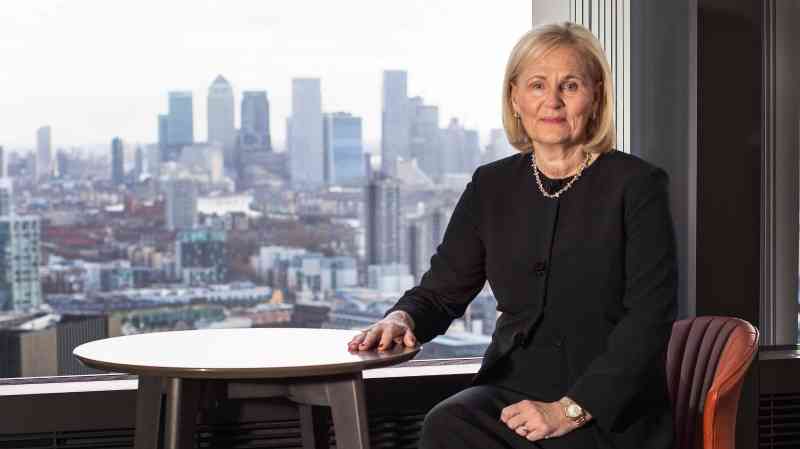Why don’t more bosses walk away from misfiring bids?
On Tuesday morning, the board of FTSE 250 housebuilder Bellway dialled into a hastily arranged board meeting that unravelled months of work in a single morning.
The Newcastle-based company, led by Londoner Jason Honeyman, had spent months on “Project Copper”, its plan to beef up with the £720 million takeover of rival Crest Nicholson, ahead of a likely building boom under the new Labour government.
However, what would have been the first corporate takeover in Bellway’s near 80-year history was derailed by an unspecified problem uncovered while scrutinising Crest’s books. After some debate, Bellway’s board unanimously agreed to ditch the deal.
The announcement, made to the stock exchange at 12:30pm, shocked Crest Nicholson — and the wider market — because it looked like the deal was as good as done. The two housebuilders had seemingly agreed on a price, got their shareholders onside and, only days earlier, had trumpeted the “compelling” strategic and financial logic of bringing their businesses together.
It is highly unusual for takeovers to fall apart at this late stage — in public at least. Yet this is the second time this month that the putative purchase of a listed company has collapsed at the 11th hour.
On August 2, the Dubai-based consultancy Sidara informed the board of John Wood Group that after two months spent poring over its books, it would not make a formal bid for the engineering company because of “rising geopolitical risk and financial market uncertainty”.
Takeovers are inherently risky, so theoretically you would expect more to fall at the final hurdle. In which case, why don’t chief executives pull the plug on deals more often?

Ego has a large part to play. Bosses are cognisant that their tenure at the top of a company may only last a few years, and they can be seduced by the idea of a big takeover that leaves a personal legacy. Their bonus package may also be structured so that they get personally rewarded for the overnight growth in profits a takeover can bring.
“There is a fair amount of management hubris that drives the mergers and acquisitions market — the perception can still be that bigger is better,” said Professor Scott Moeller, director of the M&A research centre at Bayes Business School. “Plenty of deals have gone through that probably shouldn’t have done.”
Once companies begin seriously to consider a takeover, they will appoint investment bankers to advise them. Those bankers have strong financial incentives to get the deal over the line.
Unlike M&A lawyers, who are paid for the hours they work on a deal regardless of whether it happens, bankers only get paid if a deal completes. And, if the companies do sign on the dotted line, those fees for bankers can run into the tens of millions of pounds for the advice they provide and the acquisition financing they arrange.
Little wonder they often have a reputation as cheerleaders for a deal, rather than cool-headed consiglieri with the client’s interests uppermost in their minds.
Bankers deny this, insisting that maintaining long-term relationships with business leaders, by providing impartial advice, is more important than going after quick wins. “The non-executive [director] circuit is well trodden by a lot of the same people, so you don’t want to get a bad reputation — that’s a pretty powerful dynamic,” said one banker.
Once deal talks leak into the public domain, the added scrutiny of the media and the City makes it harder for the predator to walk away, or for the companies to renegotiate terms without chief executives losing face.
“It’s quite unusual for chief executives to walk away from a deal once it becomes public, because their reputation is on the line and a huge amount of time and effort has gone into it — and because of that, I applaud it [when they do],” said Gervais Williams, head of equities at the asset manager Premier Miton. “The easy thing to do would be just to carry on and do the deal, but I am much more impressed when management teams say, ‘Now that we have all the details, we are less confident.’ ”Investors like disciplined management teams because academic research has found that between 60 and 70 per cent of M&A deals have actually ended up destroying shareholder value. However, management consultants from Bain & Co argue that the success rate of deals has increased significantly due to better integration planning and more thorough due diligence.Acquiring companies call in a small army of consultants and lawyers to scrutinise their target’s contracts with customers and suppliers, as well as any outstanding litigation in which the business they covet may be embroiled. Failing to scrutinise a company properly — or ignore the warning signs — can have devastating consequences.Lawyers for Autonomy founder Mike Lynch claimed in court that Hewlett-Packard’s due diligence on the software company it bought for $11 billion in 2011 largely consisted of just four conference calls lasting no more than six hours altogether. HP later wrote down Autonomy’s value by £5.5 billion and unsuccessfully sued Lynch for fraud.Before that, Royal Bank of Scotland’s catastrophic €71 billion acquisition of Dutch bank ABN Amro, on the cusp of the 2008 global financial crisis, left it needing a £46 billion government bailout. The Financial Services Authority lambasted RBS’s board for limiting its due diligence to information contained in two lever-arch files and on a CD.There is no suggestion that Honeyman, Bellway’s boss, avoided a similar catastrophe by leaving Crest at the altar. Nevertheless, investors rewarded his prudence: Bellway’s shares ended the week 7.5 per cent higher at £30.26, whereas shares in Crest Nicholson tanked 18 per cent to 213p. Perhaps there is no shame in walking away after all.




Post Comment